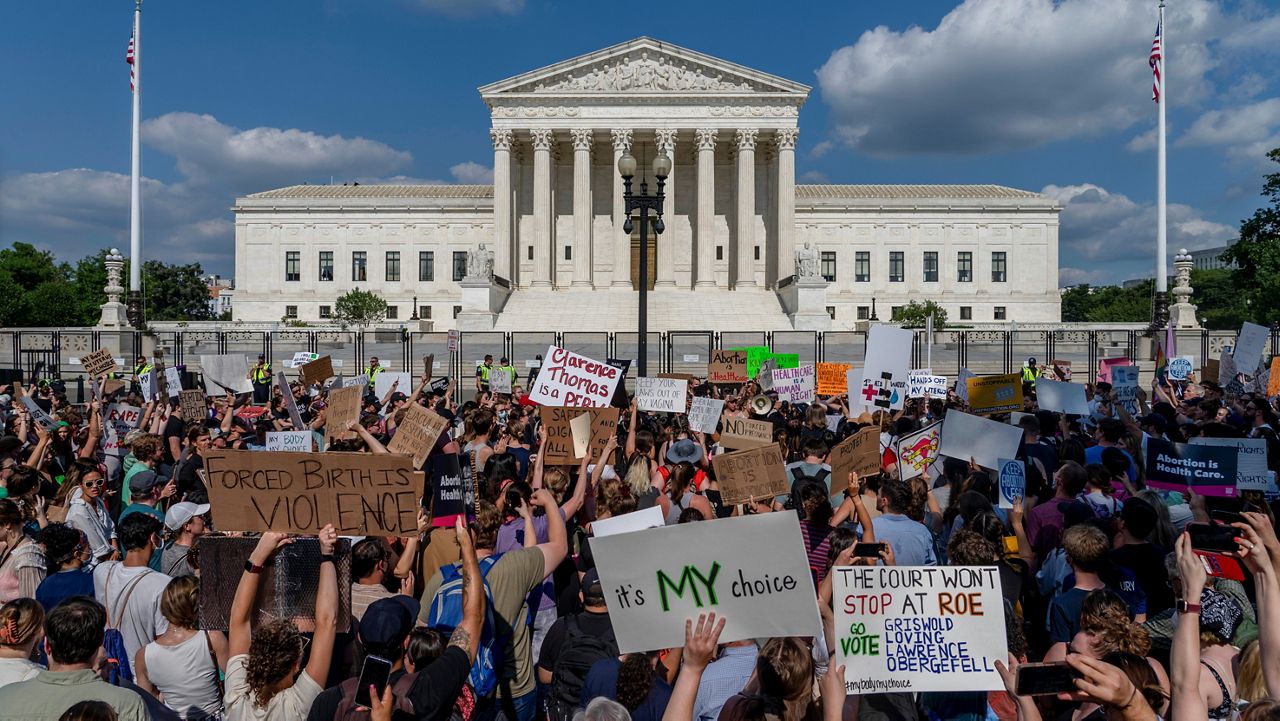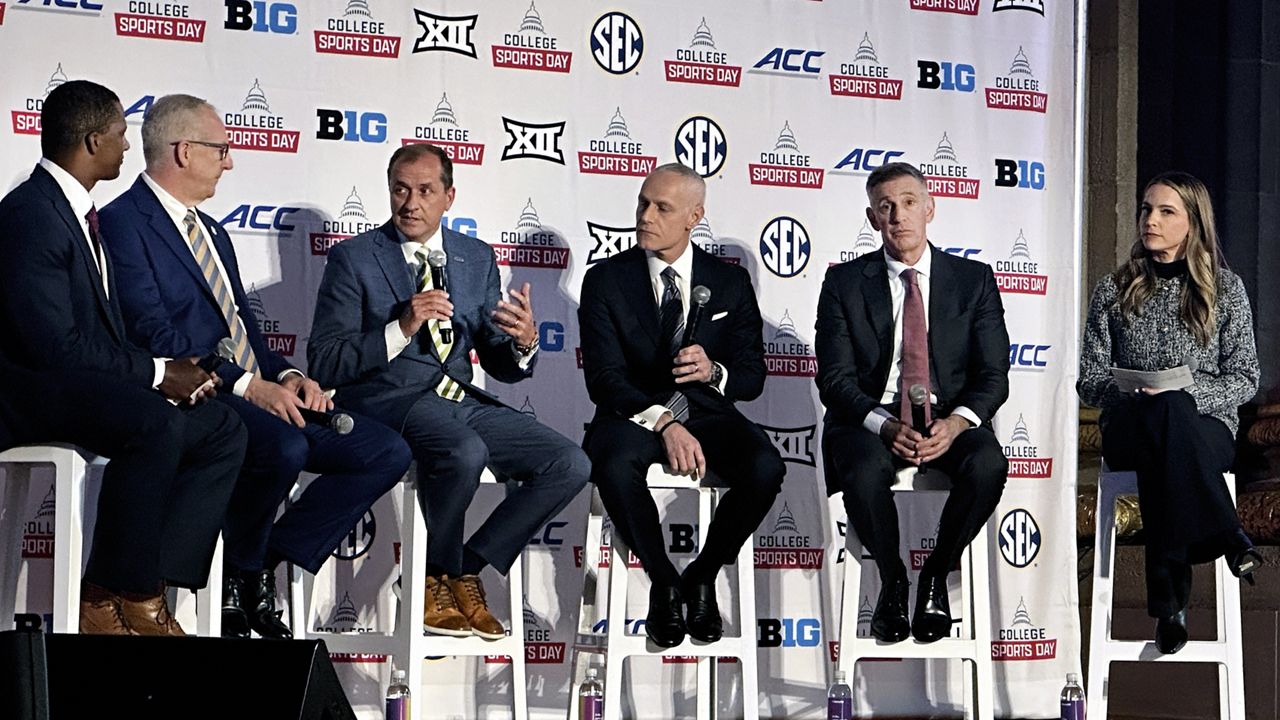When President Joe Biden nominated Deputy Labor Secretary Julie Su to succeed Marty Walsh as Labor Secretary last month, the move was met with thunderous applause from labor advocates and Democrats alike.
“Julie has spent her life fighting to make sure that everyone has a fair shot, that no community is overlooked, and that no worker is left behind,” Biden told the room, overflowing with labor leaders and members of the AAPI community.
Su, the daughter of a Chinese mother and a Taiwanese father, will become the first Asian American secretary in Biden’s cabinet if she’s confirmed.
“Sixty years ago, my mom came to the United States on a cargo ship because she couldn’t afford a passenger ticket,” Su told the crowd after Biden’s introduction. “Recently, she got a call from the President of the United States telling her that her daughter was going to be nominated to be U.S. Labor Secretary.”
Su, who was the top choice of many Asian American lawmakers and Democrats on Capitol Hill in 2021, is getting a chance at the top job after Walsh left the department to head up the NHL players union in March.
“I am elated that President Biden is nominating Julie Su to be our nation's next Labor Secretary,” Rep. Judy Chu, D-Calif., who serves as the Chair of the Congressional Asian Pacific American Caucus, tweeted after the White House announced the nomination. “She's eminently qualified to lead the Department and will successfully deliver results for our workers on Day 1.”
Su was tapped by California Gov. Gavin Newsom to lead the California Labor and Workforce Development Agency in 2019, where she oversaw unemployment insurance claims, workforce development, in addition to the Agricultural Labor Relations and Public Employee Relations Boards.
Before that, Su served as California Labor Commissioner from 2011-2018, and was previously the litigation director at Asian Americans Advancing Justice in Los Angeles, the nation's largest non-profit civil rights organization devoted to issues affecting the Asian American community.
Su’s real rise to fame, however, came from her work on one of the most high-profile labor cases in California’s history back in the mid-1990s, when she fought for Thai garment workers who had been previously enslaved in a sweatshop near Los Angeles.
The AFL-CIO has endorsed Su’s nomination; President Liz Shuler told Spectrum News that Su is “eminently qualified” to be the next labor secretary.
“This has been her life's work. She’s spent pretty much literally every waking hour of every day thinking about how to improve the lives of working people for decades,” said Shuler. “Whether it's wage theft, misclassification of workers, you speaking up for workers who have no voice, particularly her work with immigrant workers. And we know [with] the famed Thai garment workers case that she took on, she’s just not afraid to take on the big challenges, even when the odds are against her.”
But Su’s critics cite her handling of California’s fraudulent unemployment claims during the pandemic. Fraudulent payments were made to prisoners as a major concern. They also point to the fact that many people who lost their jobs due to coronavirus-related business closures were waiting for weeks or even months for checks. It was one of the biggest concerns from her first time through the nomination process, and continues to haunt her.
“She's demonstrated the sort of inability to keep track of this type of stuff, or at least to have [had] the good [sense] to surround yourself with the type of people who could do that. And these things are always sort of a reflection of the person at the top and what their priorities are,” said Sean Higgins, a research fellow at the Competitive Enterprise Institute, a libertarian think tank.
When asked about it during her confirmation hearing in 2021, Su called it “a perfect storm of challenges” created in part by low unemployment insurance funding and technology challenges.
Overall, the fraudulent cost California at least $11.4 billion.
Shuler defended Su against those attacks, telling Spectrum News that Su was faced with an “unimaginable scenario,” who was “doing her best with the technology she had, of course, which we know is out of date.”
“Still, she found a way to get checks out the door quickly and into the hands of those who need it the most, at a very difficult time.”
The AFL-CIO announced Wednesday that they have made a six-figure digital ad buy in support of Su’s nomination, launching a campaign called “Stand with Su” to support Su’s confirmation and “educate senators, Republican Democrat alike, Sue supporter or undecided” that confirming Su is a “priority for working people.”
Higgins says that Su’s coziness with labor unions is a red flag.
“Su is a favorite of organized labor in unions,” said Higgins. “Su's background is basically as a civil rights attorney and a very sort of aggressive enforcer in that area. And there's a place for that in the department, it's just not necessarily at the top position.”
“We're a free market Institute, we believe in those principles. And Su is concerning as far as that goes. She has a bad record in California, as well as the labor leader at the department there. And therefore, it's concerning that if she becomes the secretary for the entire nation,” Higgins added.
But Shuler argues that a candidate for labor secretary “should be looking through the lens of working people when they approach this job.”
“Your task [as labor secretary] is to essentially run an agency that oversees all of the different agencies that enforce the laws. So whether that's wage and hour laws, whether that's occupational safety and health laws, thinking about workforce development and training, workers compensation,” listed Shuler. “You think about what this agency is tasked with, it's all the things that protect workers.”
Su was confirmed in 2021 with a 50-47 vote on the Senate floor along party lines, though she did receive bipartisan support within the Senate Health, Education, Labor and Pensions Committee from Senators Lisa Muskowski, R-Alaska, and Susan Collins, R-Maine.
The committee’s ranking member, Senator Bill Cassidy, R-LA, has already brought up his concerns with Su’s nomination on the House floor late last month.
“Deputy Secretary Su has a troubling record, and is currently overseeing the Department of Labor's development of anti worker regulations dismantling the gig economy. This does not inspire confidence in our current position, let alone confidence that she should be promoted. Su's record now and in her previous position as secretary for the California Labor and Workforce Development Agency deserves scrutiny,” he said in his floor speech.
As for what to expect Thursday, Cassidy’s communications director, Ty Bofferding tells us Cassidy will “lay out an important question before the committee regarding Julie Su’s nomination,” during his opening remarks. “Does her record indicate that she will be a responsible, experienced administrator of the department or will she act as an activist to promote a political agenda?”
Bofferding said Cassidy will point out Su “has no direct experience negotiating or handling labor disputes.”
It's unlikely Su will get an Republican support this time around, and it’s still unclear how Senators Joe Manchin, D-W.Va., Kyrsten Sinema, I-Ariz., and John Tester, D-Mont., plan to vote.
Tester, who voted for her last time, told reporters Wednesday he planned to meet with Su after her hearing. “I’m very ambivalent. I voted for her before. I don’t have a problem with her right now. We’ll see how things go,” he said.
With California Sen. Dianne Feinstein's prolonged absence as she recovers from shingles, Democrats can only afford to lose one vote.








)
